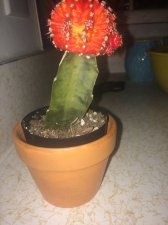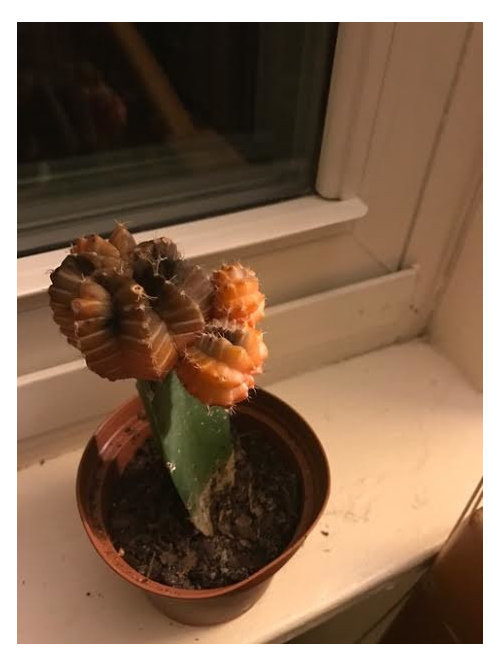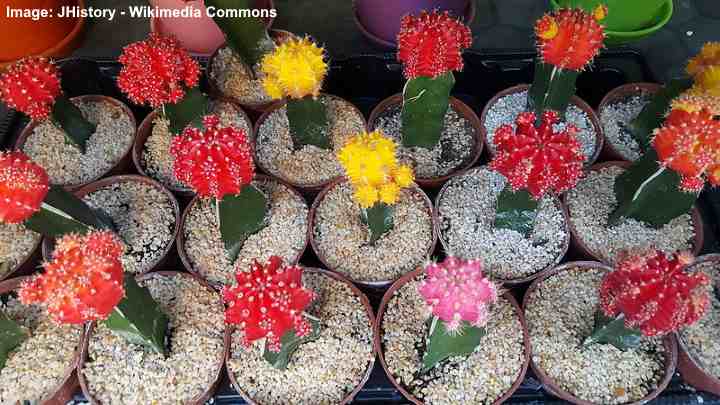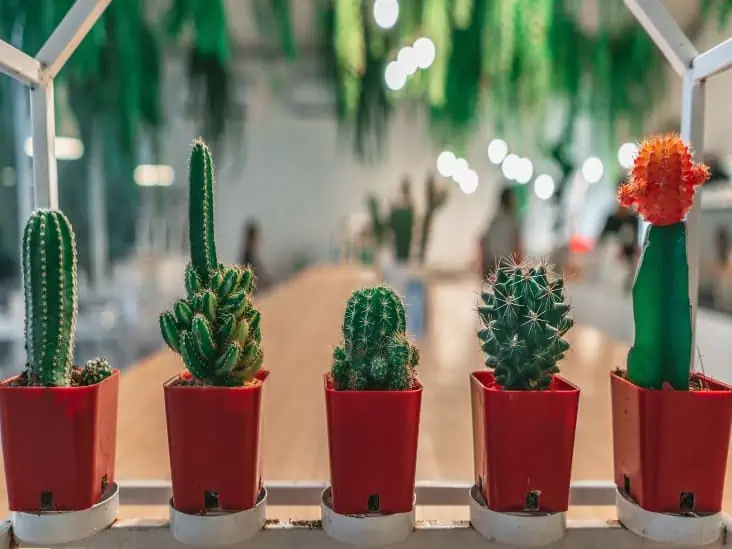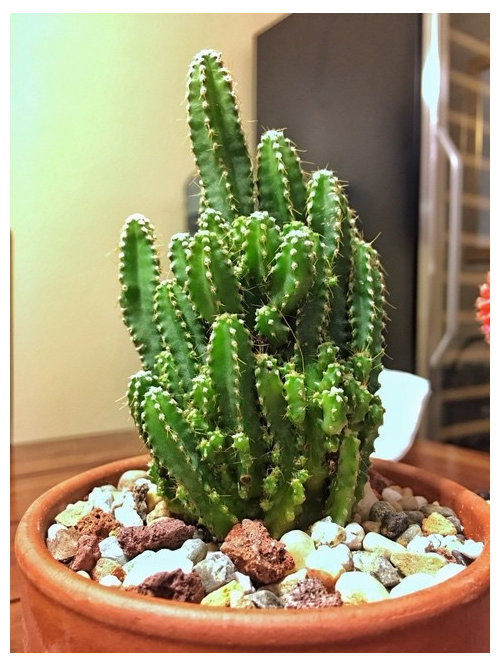Ruby Ball Cactus Top Dying

Ruby ball cactus not dying.
Ruby ball cactus top dying. I also see some dark brown spots forming on the bulb. I think my first ruby ball cactus is dying it needs help. Give them a spot of sunlight and a minimal amount of care and they will grow healthily and happily. But be careful to keep them out of the way of drafts away from leaky windows and off the floor near doors.
A pure red cactus seedling lacks the ability to produce. Albino cacti grafted unto upright green cacti. Back to top. The ruby ball cactus also known as the red cap cactus is a grafted specimen the colorful red top the sicon is gymnocalycium mihanovichii the name refers to the flower buds bearing no hair or spines the lower green cactus host portion can be any number of species but is usually a hylocereus cactus the main job of the lower cactus is to display the gymnocalycium at an advantageous height.
Ruby ball cactus not dying. Thought dead but now sprouting on the sides what should i do. The base is brown and the bulb is now losing color. Overwatering is the primary cause of cactus rot in the home garden.
Treating cactus rot issues. Cacti like cooler temperatures during their dormant period in the winter. Cacti are generally problem free plants. Commercially it s sold under names like moon cactus or ruby ball cactus.
You may even notice some oozing of your cactus plants. Cactus problems that have gotten into the root usually result in a slowly dying plant while topical issues in the upper body can be treated easily. It also got looser over the last couple weeks so i m pretty sure the roots are weaker now. I think it s dying so i need help asap.
The gymnocalycium cultivar sometimes called ruby ball cactus or moon cactus is actually two cacti in one. A healthy temperature range at night in the winter is 45 60 degrees fahrenheit 7 16 degrees celsius so a basement or a room that gets less heat would be suitable storage areas. Red top cactus care. Thought dead but now sprouting on the sides what should i do.
As the top plant has no green chlorophyll that allows the underlying pigmentation in this case a red one to take the spotlight giving an entirely red plant.
